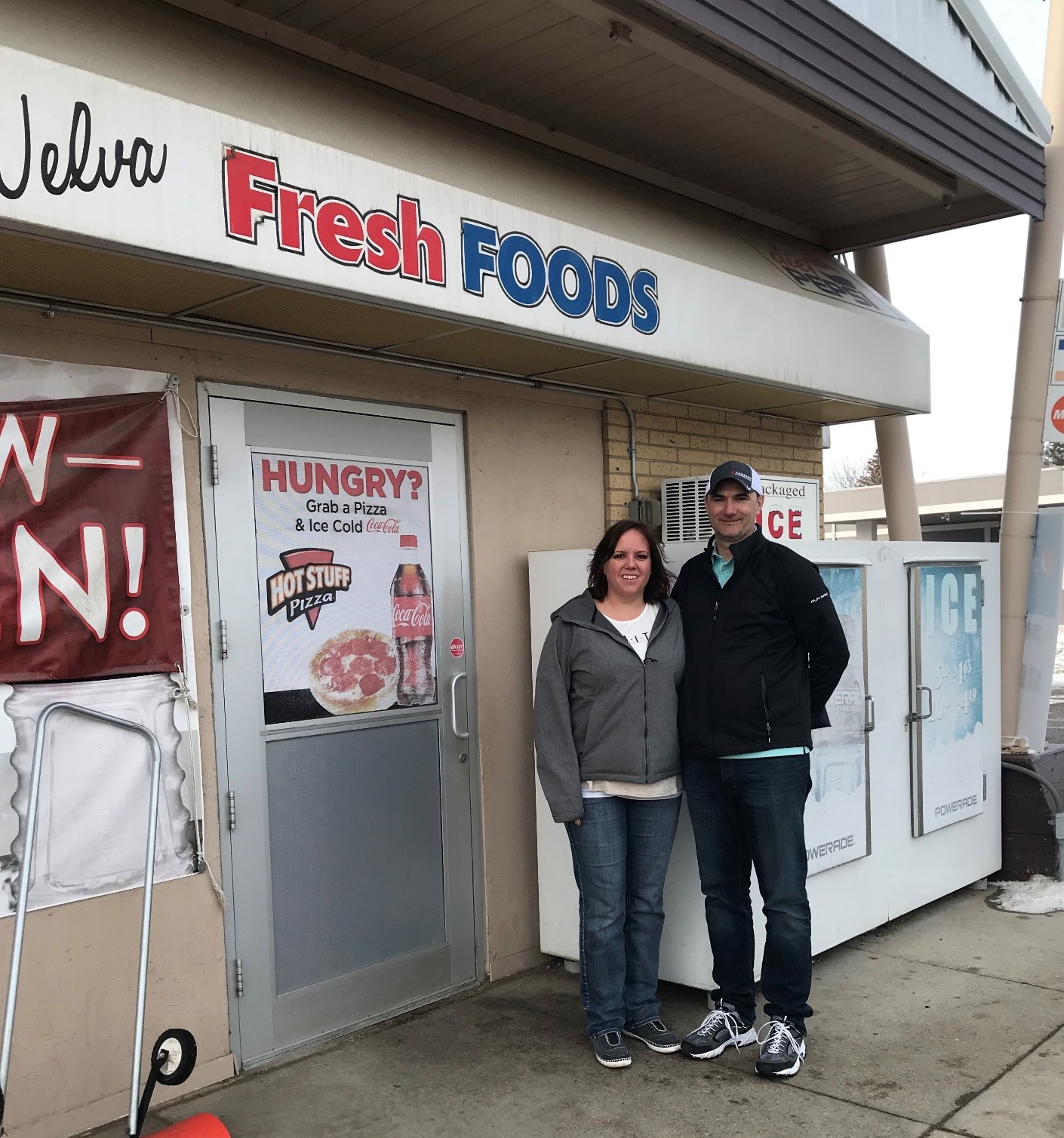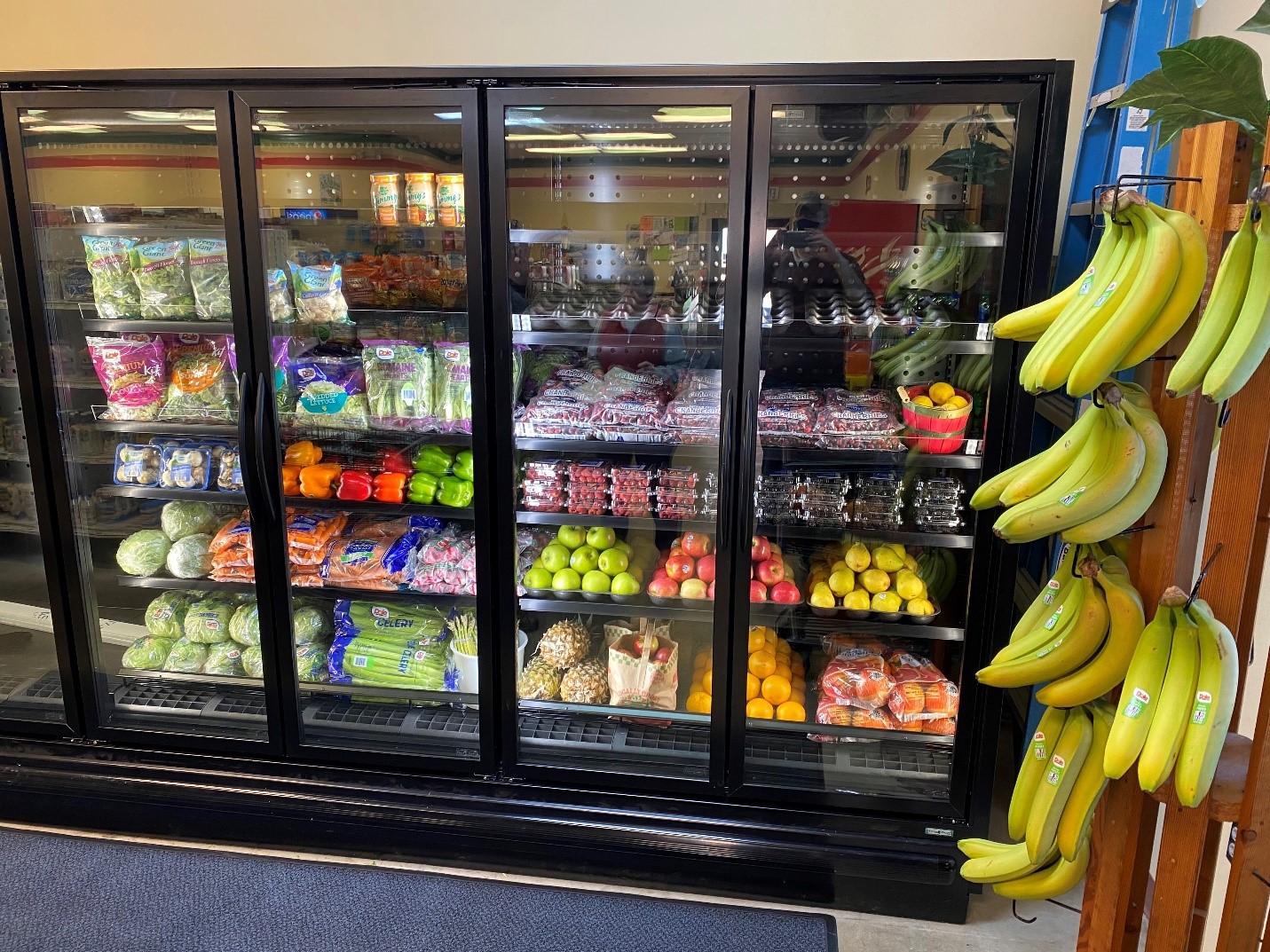Grocery Store Owners Improve Access to Local and Healthy Foods Thanks to RLF Program
Accessing healthy and affordable foods is an increasing challenge to many North Dakota residents. Much of the state is rural and, according to the U.S. Department of Agriculture (USDA), a third of all counties have communities that are considered food deserts.

Brenda and Matt McCasson are the new owners of Velva Fresh Foods
The town of Velva relies on its local grocer, Velva Fresh Foods, which has become a key fixture within the community. Recently, the former owner decided to sell the store, and residents became concerned that it would no longer be a locally run business. They also feared that it might close permanently, as the next closest grocery store is more than 25 miles away.
"With small towns, if a grocery store goes, the rest kind of falls behind," Brenda McCasson said. "You have to have a good school and you have to have a grocery store in order to have a thriving community. It seems like they go hand in hand."
McCasson was an employee of Velva Fresh Foods, first working as a meat cutter before taking over management and the day-to-day operations. In 2019, the former owner approached McCasson and husband, Matt, about purchasing the store.
“If we didn’t get the loan, my biggest fear was that the owner would probably sell it to someone from out of town who didn’t know the customers and the community. We know the community well and want to take care of it,” McCasson shared.

Souris Basin Planning Council provides guidance and assistance for businesses and entrepreneurs in North Dakota.
The McCassons received a loan through Souris Basin Planning Council (SBPC) to purchase the store. SBPC provides guidance and assistance for businesses and entrepreneurs in the seven-county region, and capitalizes and administers a Revolving Loan Fund (RLF), which is funded by the Economic Development Administration (EDA).
“Small businesses contribute to the culture of a rural community and it’s the mom and pop shops that help create a sense of community. When one closes, the community experiences major negative impacts and setbacks,” said SBPC Assistant Director Briselda Hernandez.

The McCassons purchased a grocery store in Drake, ND to prevent it from closing.
It wasn’t only the Velva community the McCassons worried about. In the middle of the purchase of Velva Fresh Foods, they were approached to purchase the grocery store in the nearby town of Drake. The owner wanted to sell, and if no one took over, the store would close.
“We thought it would be good for both communities to have two thriving grocery stores and it has worked out well,” Brenda McCasson said.
The two stores operate independently, however, owning both allows the McCassons to purchase larger quantities of products at lower cost and offer sales and discounts to their customers. This allows the local stores to remain competitive with larger stores located further away, keeping the local stores open and thriving in small communities.









